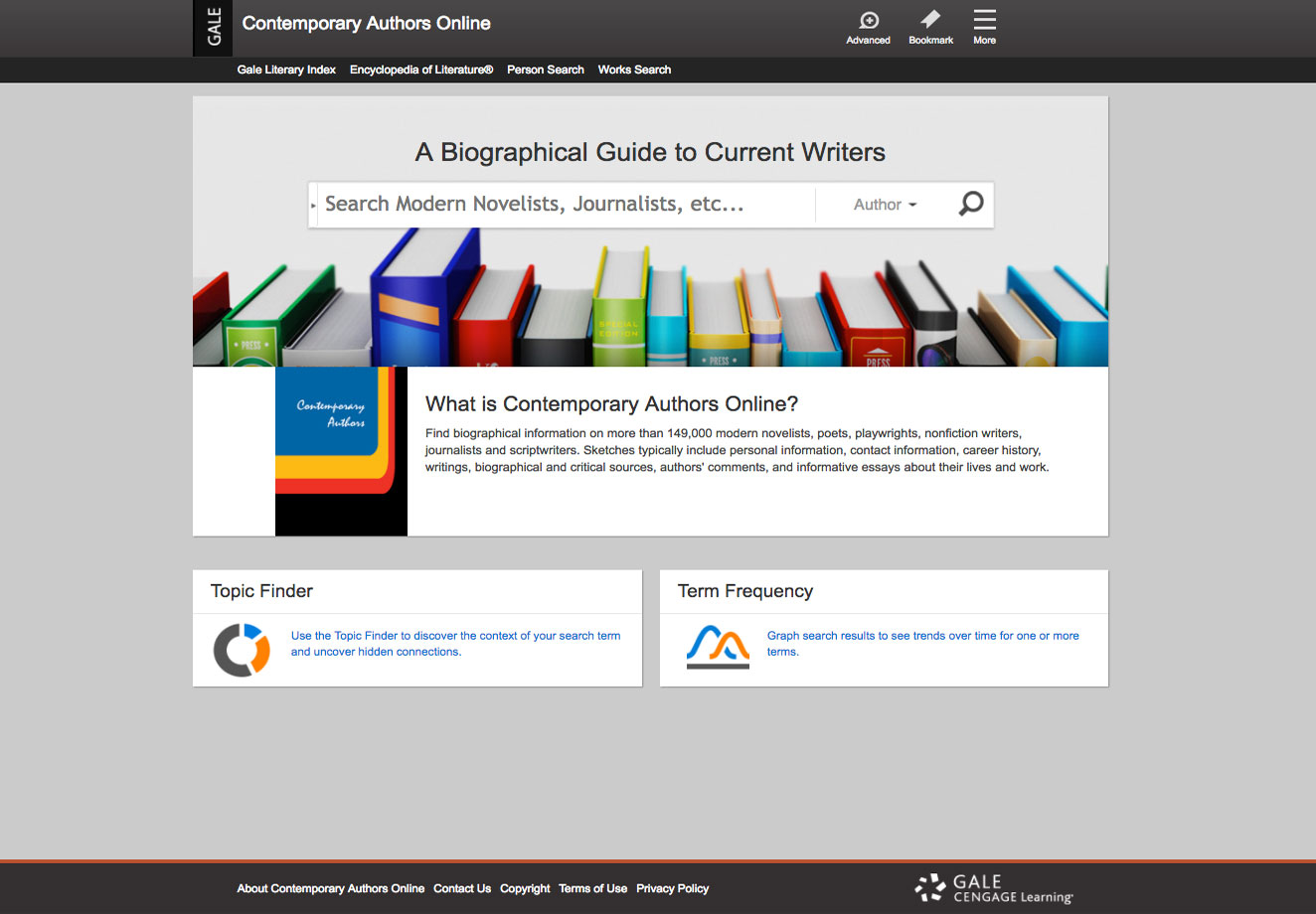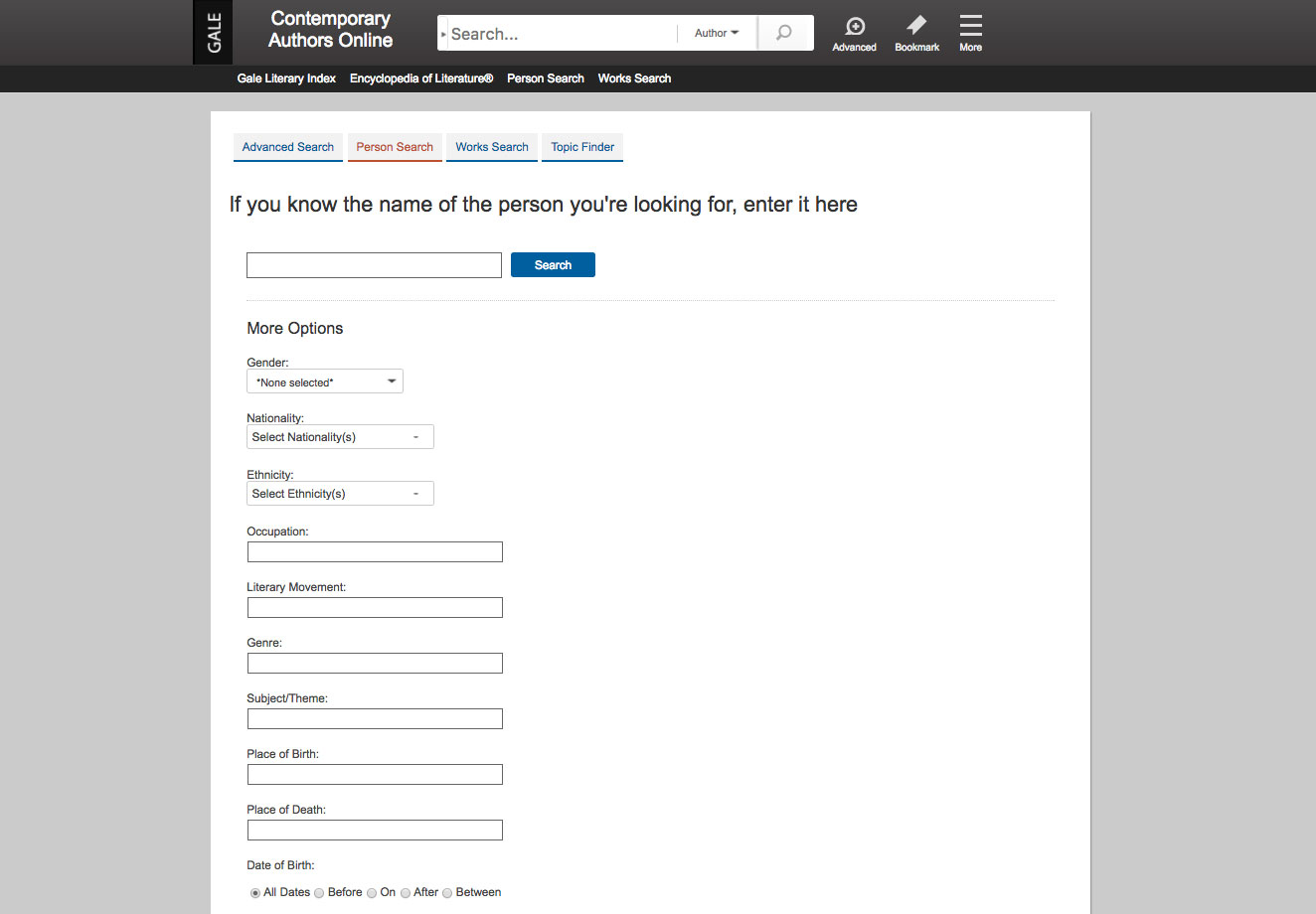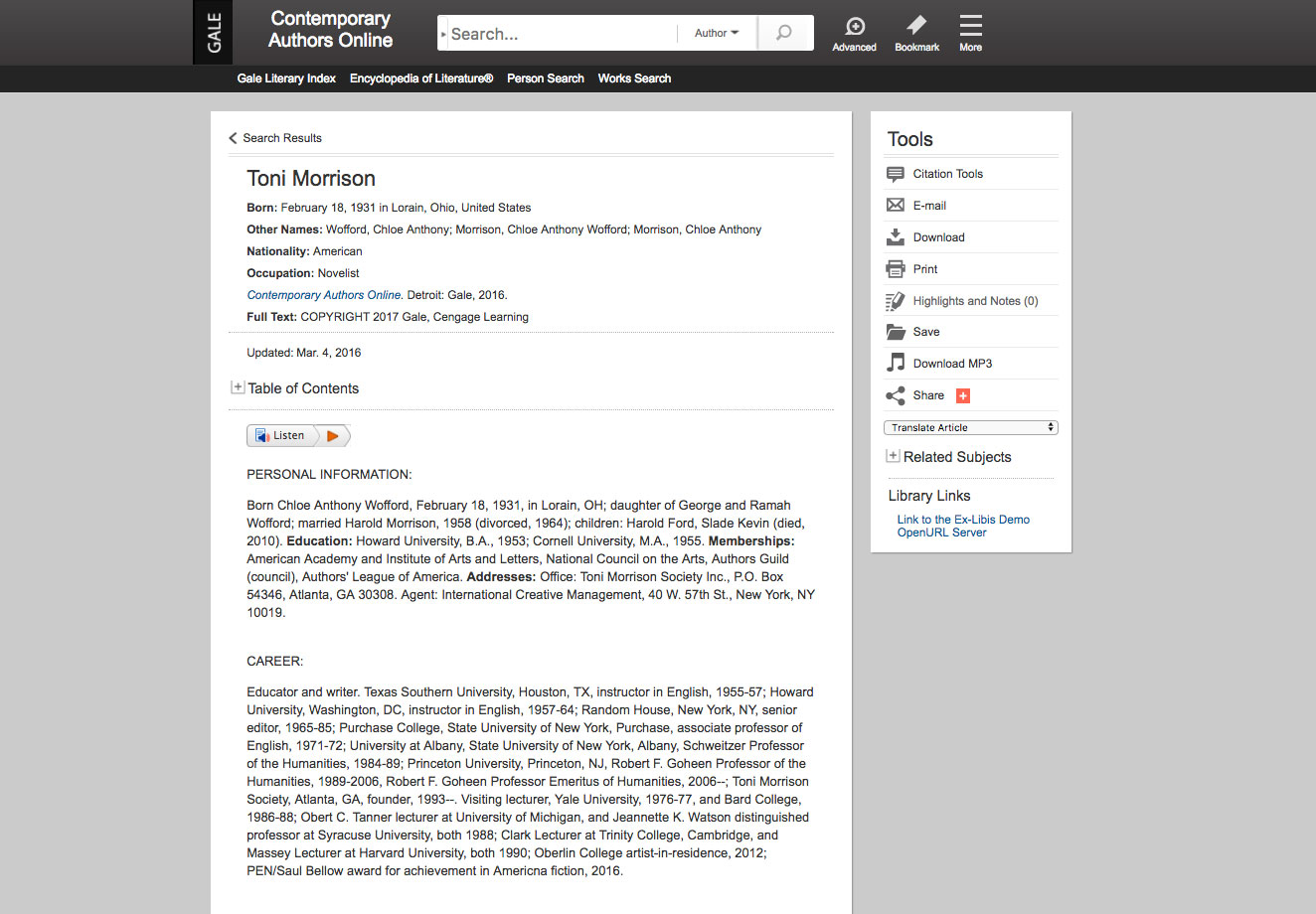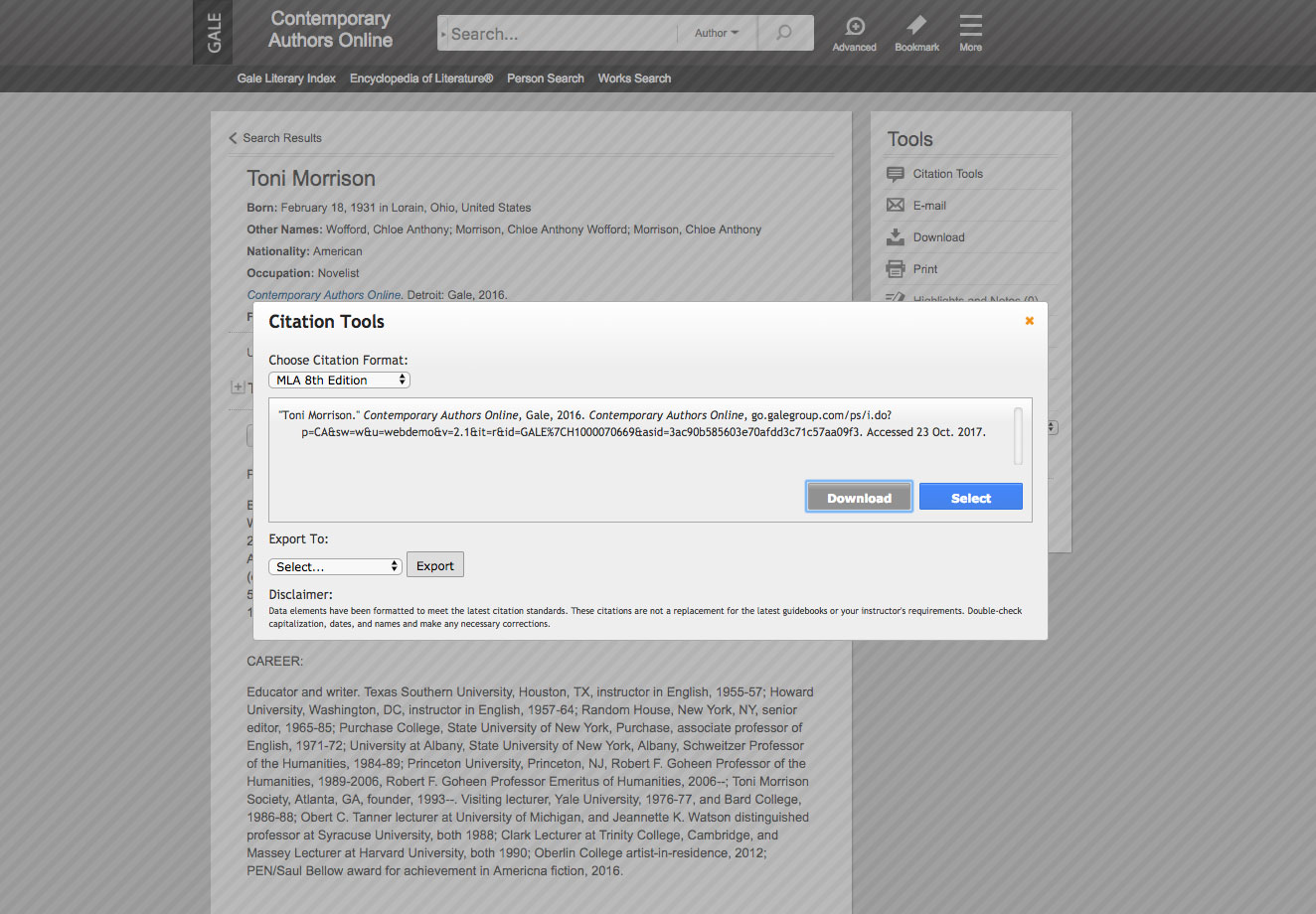Continuous access to current biographical and bibliographical data.
Gale Literature: Contemporary Authors offers your students and patrons continuous access to current biographical and bibliographical data on more than 120,000 modern authors such as J.K. Rowling, Isaac Asimov, Isabel Allende, Joyce Carol Oates, Michael Crichton, Derek Walcott, Dave Barry, Toni Morrison, Neil Simon, and many others.
Each entry contains comprehensive and up-to-date information, accessible through an easy-to-use interface with a variety of search paths to help your users locate the information they need quickly and efficiently. It’s easy to search for an author by:
- Name
- Nationality
- Date and place of birth
- Honours and awards
- Title, subject and genre of work
Approximately three thousand new entries and one thousand full-entry updates from the print volumes of Contemporary Authors and Contemporary Authors New Revision Series are added to the database annually. Moreover, entries on the most active authors in Gale Literature: Contemporary Authors are continuously updated with author-provided updates, expanded entries, bibliographies, awards and other recent information.
The entirety of the Gale Literature: Contemporary Authors Online database is included in Gale Literature Resource Center.
Look Inside
Additional Details
subjects covered
- Communication and Media Studies
- Comparative Literature
- Creative Writing
- Education
- English Language
- English Literature
- History
- Linguistics
- Literature
- Psychology
- Publishing
- Sociology
- Twentieth Century Studies
Platform Features & Tools
Collaboration Tools
Integrated G Suite for Education and Microsoft Office 365 tools enable users to share, save, and download content—including highlights and notes.
Topic Finder
By grouping commonly occurring themes, this tool reveals hidden connections within search terms—helping to shape research by integrating diverse content with relevant information.
Term Frequency
Researchers can see the frequency of search terms within sets of content to begin identifying central themes and assessing how individuals, events, and ideas interact and develop over time.











